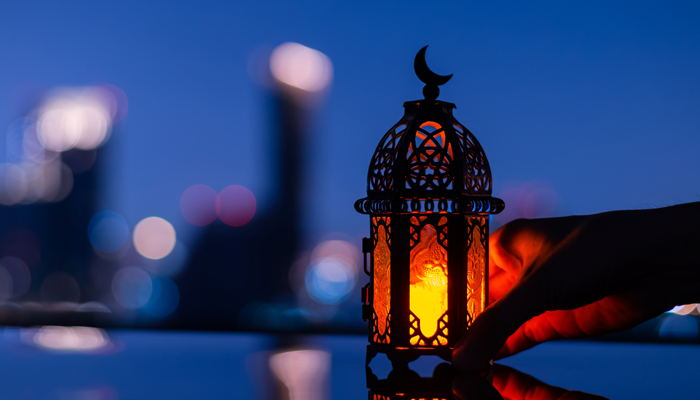Ramadan

How is Ramadan observed?
During Ramadan, a Muslim family will typically wake before dawn to eat a modest breakfast prior to performing a morning prayer. They may or may not go back to bed before beginning their day. During daylight hours, they don't eat or drink (even water). Fasting helps Ramadan observers to feel closer to God, learn self control, and understand what it's like for people who don't have enough food.
The fast is broken at the end of the day with sunset prayers and a meal called an iftar. It is customary to visit family and friends during or following the iftar. Families often return home late in the evening, depending on the time the sun sets and prayers are completed.
Ramadan is also a time to be kind, share with others, and focus on doing good deeds.
End of Ramadan
Eid al-Fitr, which marks the end of Ramadan, is a celebration known as the Festival of the Breaking of the Fast. Friends and family gather for festive meals, exchange gifts, and offer donations to the less fortunate.
How to support Muslim friends and coworkers during Ramadan
If there is a person in your life who is fasting for Ramadan, there are ways you can make this time easier for them. Some suggestions include:
- Try to remember not to offer them food during the day.
- Be aware they may be feeling tired because of late night prayers and pre-dawn meals.
- Consider scheduling meals or events that include food after sunset or following the end of Ramadan.
- If you want to wish your Muslim friends or coworkers a happy Ramadan or happy Eid al-Fitr, you can simply say, “Happy Ramadan!” or “Happy Eid!”. To offer a more authentic greeting, options include, “Ramadan Kareem”/“Eid Kareem” (have a generous Ramadan/Eid), or “Ramadan Mubarak”/”Eid Mubarak” (have a blessed Ramadan/Eid).